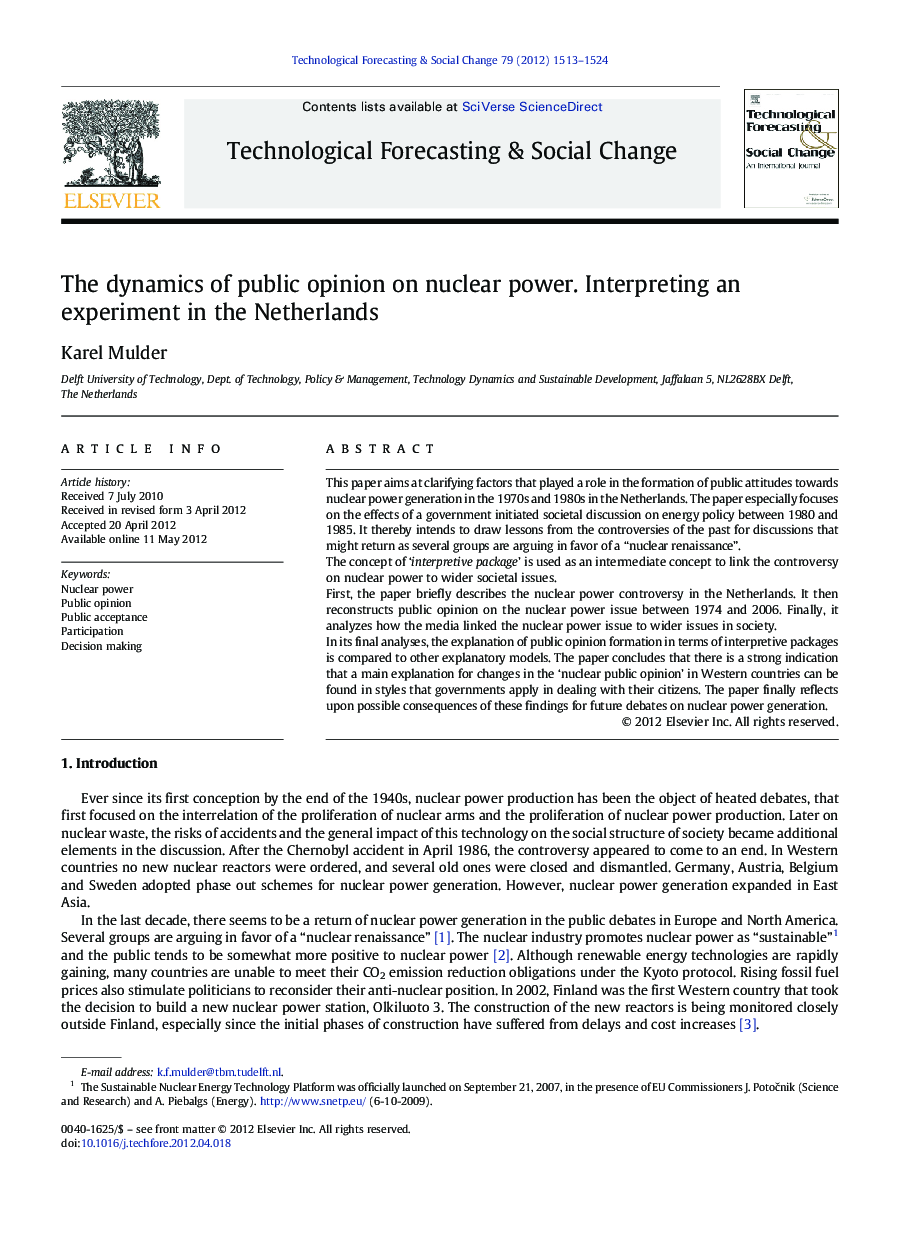| Article ID | Journal | Published Year | Pages | File Type |
|---|---|---|---|---|
| 896842 | Technological Forecasting and Social Change | 2012 | 12 Pages |
This paper aims at clarifying factors that played a role in the formation of public attitudes towards nuclear power generation in the 1970s and 1980s in the Netherlands. The paper especially focuses on the effects of a government initiated societal discussion on energy policy between 1980 and 1985. It thereby intends to draw lessons from the controversies of the past for discussions that might return as several groups are arguing in favor of a “nuclear renaissance”.The concept of ‘interpretive package’ is used as an intermediate concept to link the controversy on nuclear power to wider societal issues.First, the paper briefly describes the nuclear power controversy in the Netherlands. It then reconstructs public opinion on the nuclear power issue between 1974 and 2006. Finally, it analyzes how the media linked the nuclear power issue to wider issues in society.In its final analyses, the explanation of public opinion formation in terms of interpretive packages is compared to other explanatory models. The paper concludes that there is a strong indication that a main explanation for changes in the ‘nuclear public opinion’ in Western countries can be found in styles that governments apply in dealing with their citizens. The paper finally reflects upon possible consequences of these findings for future debates on nuclear power generation.
► Cost/benefit analyses (energy prices/risk) cannot account for the changes in public opinion. ► The analysis indicates that trust in the government is probably a major factor. ► Public participation processes might contribute to trust.
